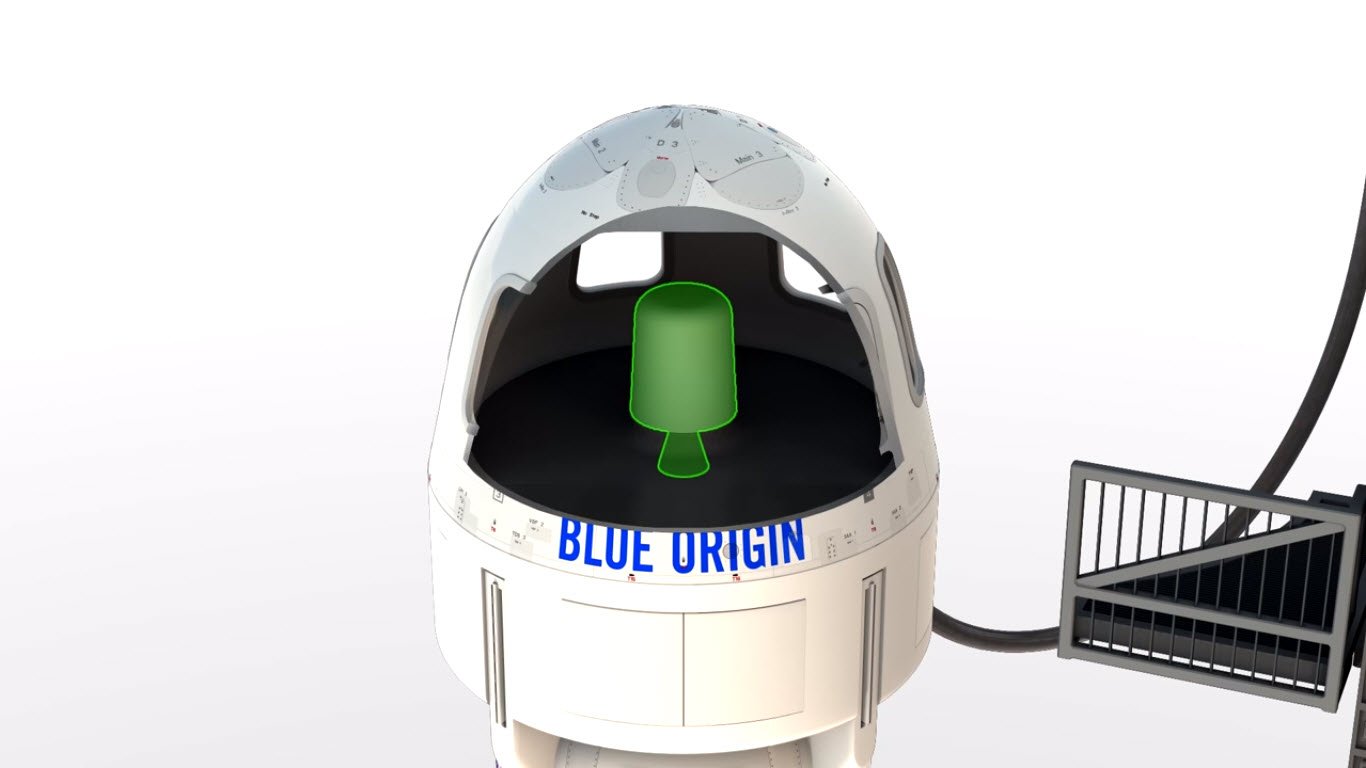Jeff Bezos' Blue Origin to Launch 'In-Flight Escape Test' Next Week

Blue Origin, the spaceflight company run by billionaire Amazon.com founder Jeff Bezos, will perform a critical "in-flight escape test" of its New Shepard suborbital space vehicle next week.
The uncrewed flight, which is designed to see how New Shepard would respond to a launch emergency, will take place Tuesday (Oct. 4), Blue Origin representatives announced via Twitter today (Sept. 29). The company will webcast the test live, with coverage starting at 10:50 a.m. EDT (1450 GMT) on Tuesday.
New Shepard consists of a rocket and a space capsule designed to take people and/or scientific experiments on brief flights to suborbital space. Both components are reusable; the rocket comes back to land at the launchpad, while the capsule makes a soft landing with the aid of a parachute. [In Photos: Blue Origin's Latest Rocket Launch & Landing ]
Blue Origin has already launched the same New Shepard booster on suborbital flights four times since November 2015; each time, the rocket has aced its landing. But the Oct. 4 jaunt will likely be its last.
"Goal to test at most stressing flight condition. Likely to lose booster after escape," company representatives said today via Blue Origin's Twitter account, @blueorigin.
The "escape," in this case, is that of the New Shepard capsule, which would need to get itself out of harm's way very quickly in the event of a real-life problem during launch.
"A solid rocket motor fires for 2 seconds, quickly separating the crew capsule away from the booster," the narrator says in a Blue Origin video describing next week's test. "Once away, the capsule enters a standard descent profile, deploying drogue and main parachutes before coasting down to a landing."
Breaking space news, the latest updates on rocket launches, skywatching events and more!
You can learn much more about the in-flight escape test in this Blue Origin blog post: https://www.blueorigin.com/news/blog/in-flight-escape-test
New Shepard was named after Alan Shepard, who became the first American in space when he launched on a suborbital flight in May 1961. Blue Origin announced earlier this month that it's building a big orbital rocket named New Glenn, after John Glenn, the first American to circle the Earth.
Follow Mike Wall on Twitter @michaeldwall and Google+. Follow us @Spacedotcom, Facebook or Google+. Originally published on Space.com.

Michael Wall is a Senior Space Writer with Space.com and joined the team in 2010. He primarily covers exoplanets, spaceflight and military space, but has been known to dabble in the space art beat. His book about the search for alien life, "Out There," was published on Nov. 13, 2018. Before becoming a science writer, Michael worked as a herpetologist and wildlife biologist. He has a Ph.D. in evolutionary biology from the University of Sydney, Australia, a bachelor's degree from the University of Arizona, and a graduate certificate in science writing from the University of California, Santa Cruz. To find out what his latest project is, you can follow Michael on Twitter.
